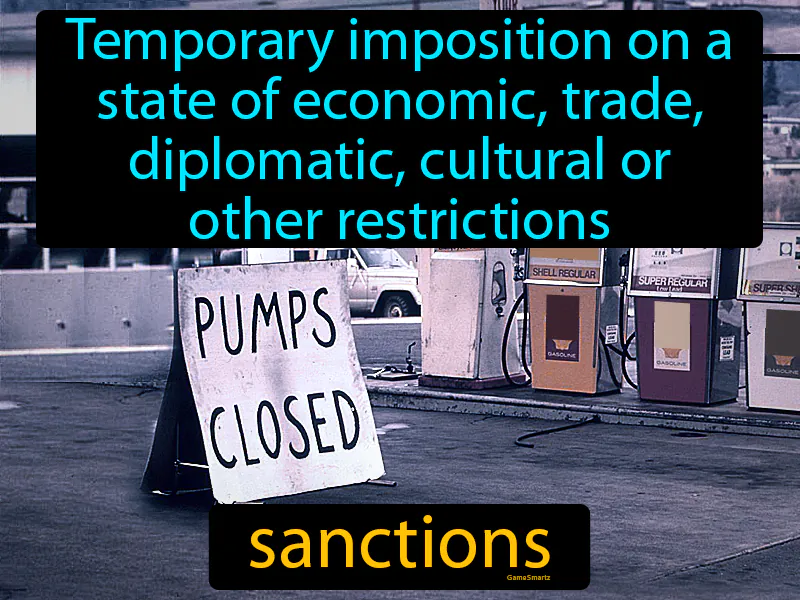Sanctions
Sanctions: Easy to understand
During the "Crisis in Confidence" period from 1968 to 1980, sanctions were used by countries like the United States to apply pressure on nations they disagreed with, such as during the oil embargo when Arab countries restricted oil exports in response to U.S. support for Israel. This was important because it highlighted the global interconnectedness in energy resources and how political conflicts could lead to economic challenges. Sanctions responded to geopolitical tensions and attempted to influence countries' behaviors without resorting to military action. Today, sanctions continue to matter because they can impact international trade and economies, affecting prices and availability of goods. For example, if sanctions are placed on a country that supplies essential products like oil or electronics, the prices for these items might increase, directly affecting individuals' cost of living and access to goods.

Practice Version

Sanctions: Temporary imposition on a state of economic, trade, diplomatic, cultural or other restrictions. Sanctions. Sanctions are penalties applied by one or more countries to try to influence a change in behavior of another country.